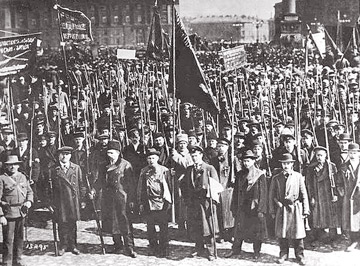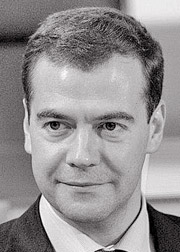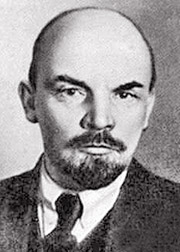Russia celebrates Day of Diplomats
Buddhapriya RAMANAYAKE
Tomorrow (February 10) Russian diplomats
celebrate their professional day, which was instituted in 2002 by a
Decree of the President of the Russian Federation
 |
|
The October Revolution also known as
the Soviet Revolution or Bolshevik Revolution, was a
political revolution and a part of the Russian Revolution.
Picture courtesy: Google |
The date of the holiday, the February 10, is associated with the
history of Russia’s first foreign affairs agency - the ‘Posolsky
Prikaz’. On this day of 1549 falls its mention and clerk Ivan Viskovaty
became its first head by being “entrusted with the ambassadorial
business”.
Toward the end of the 15th Century after the creation of a Russian
State with Moscow as its capital, the diplomacy of apanage
principalities gave way to that by one State and the creation of a
special diplomatic department became necessary to deal with foreign
policy tasks. Since then the diplomatic service was made into a special
office of the State and received a special status.
Diplomatic missions
The victory in the Northern War and the assumption by Peter I in 1721
of the title of Emperor signified fundamentally important changes in the
international standing of the Russian State. The establishment of Russia
as a great European power was supported by creation of a network of its
permanent diplomatic missions in leading countries of the world. In
1718-1720, Peter I transformed the Posolsky Prikaz into the Collegium of
Foreign Affairs. The galaxy of talented Russian diplomats that served in
the Collegium laid down the basic principles and methods of Russian
diplomacy.
On September 8, 1802 a manifesto of Emperor Alexander I established
the Foreign Affairs Ministry of Russia. Count A R Vorontsov became the
first Foreign Minister. By 1914, Russia already had a ramified network
of diplomatic and consular representations abroad.
Thus, there were 11 overseas agencies like that in 1758, 102 in 1868
and 147 in 1897. By the start of World War I Russia had more than 200
representations abroad.
Practically right after the October Revolution of 1917 the People’s
Commissariat for Foreign Affairs was created to replace the Ministry.
During the 1920s the PCFA was engaged in a major endeavour to bring
Soviet Russia out of political isolation and get it recognized as an
equal and integral subject of international relations.
The USSR actively participated in international pacts and
conferences. In the conditions of the origination of a seat of war in
the centre of Europe and the growth of war danger in the Far East,
Soviet diplomacy came out for the creation of a system of collective
security.
World War II
In the years of World War II Soviet diplomacy persistently pursued a
line on creating and strengthening the antifascist coalition and on
opening a second front in Europe, participated in the elaboration of all
the fundamental inter-Ally documents and contributed significantly to
the creation of the United Nations Organization. In 1946, the
Commissariats were reconstituted as the USSR Ministries. In the postwar
period the struggle for peace, international detente and disarmament
emerged as the priority thrusts of the Soviet MFA. A great deal was
being done to bolster the authority of the UN as a universal vehicle for
governing international relations.
 |
 |
|
Russian
President
Dmitry A Medvedev |
Leader of
the Bolsheviks
Vladimir Lenin |
The Soviet Union had a leading role in the politico-legal assurance
of the decolonization of Afro-Asian peoples.
Soviet diplomacy really assisted the pan-European process, in the
development of which the signing in 1975 at Helsinki of the Final Act of
the Conference on Security and Cooperation in Europe was an important
milestone. Understandings were reached with respect to arms race
limitation and disarmament.
Foreign policy
In 2008 President Dmitry A Medvedev approved the Russian Federation
Foreign Policy Concept, worked out with the participation of the MFA in
accordance with which the MFA “conducts the work on the direct
implementation of the foreign policy course approved by the President of
the Russian Federation and exercises coordination of the foreign policy
activity of the federal executive bodies and control over it.”
Nowadays the Russian Federation has diplomatic relations with 191
countries. The Foreign Affairs Ministry has 236 embassies, general
consulates and representative offices attached to international
organizations.
The present strengthening of the positions of Russian diplomacy is
based on the results of internal creative work, realistic analysis of
the key tendencies in the world development and the well-considered
foreign policy principles, such as pragmatism, multivectorness and a
consistent upholding of national interests.
The best traditions of Russian diplomats have always been an
enlightened patriotism, high professional culture, profound
understanding of national interests, respect for other nations as equal
partners and ability to correlate their diplomatic activity with the
real possibilities and resources of the country.
|



